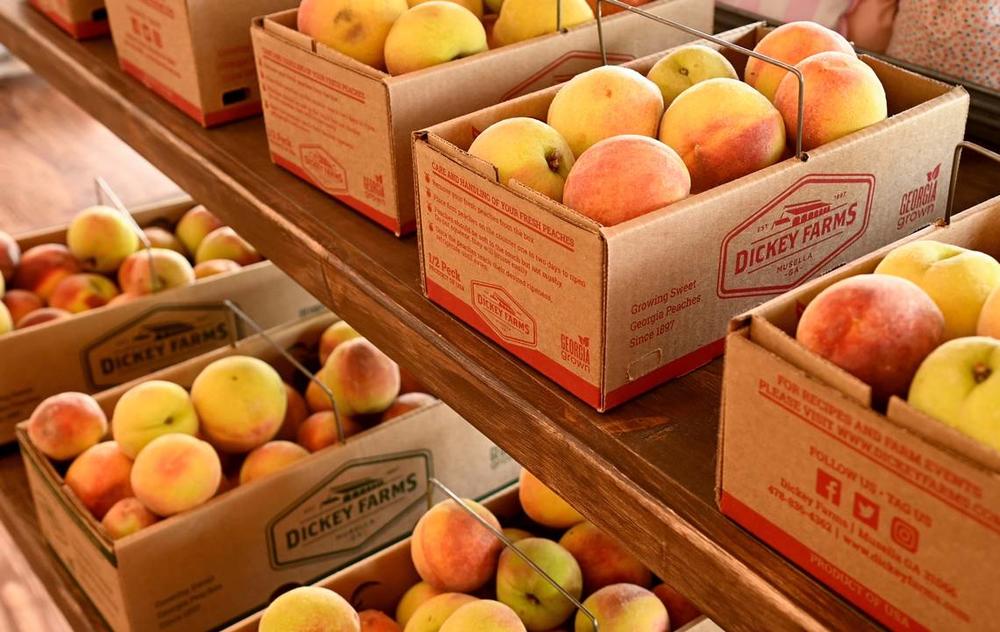
Caption
Peaches available at Dickey Farms packing house and market on a Monday morning in June 2023 in Musella. Dickey along with other Middle Georgia peach farmers sustained a substantail loss in the year's crop due to lack of chill hours and a late freeze.
Credit: Jason Vorhees, The Telegraph






